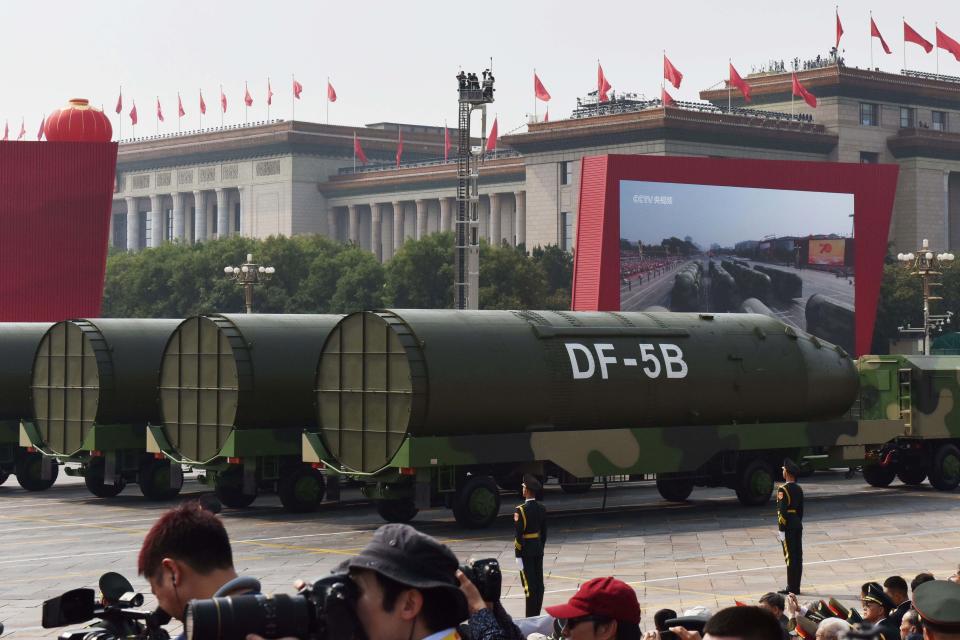China replaces nuclear force leadership in surprise shake-up
- Oops!Something went wrong.Please try again later.
China’s Xi Jinping has replaced two generals overseeing the country’s nuclear and missile arsenal, a move that analysts say represents a major shake-up of the elite force’s leadership.
State media reported that Gen. Li Yuchao, chief of the People’s Liberation Army’s rocket force unit, and his deputy, Gen. Liu Guangbin, were replaced by a naval officer and an air force officer. The new leaders, former deputy Chinese navy chief Wang Houbin and party central committee member Xu Xishen, have not previously served in the force — a dramatic break with practice, experts said.
“It’s unprecedented in the history of China’s missile forces,” said M. Taylor Fravel, a professor of political science and director of the security studies program at the Massachusetts Institute of Technology.
For decades, commanders were selected from within the rocket force, a highly technical and specialized service that oversees the country’s land-based nuclear weapons and its vast conventional missile arsenal, he said.
It also was unusual to have the commanding officer and the unit’s political commissar — Xu — named at the same time, China experts said.
The two generals who were removed have not been seen in public for months.
Bringing in outsiders to run a military unit suggested concerns in Beijing about how the organization was being run and whether it had loyalties or vested interests affecting managerial decisions, according to Fravel.

“I suspect the fact that its leadership was removed is a very clear signal to the rest of the rocket force to get in line,” he added.
It was unclear what was behind the reshuffle.
It comes after Xi has called for party discipline in the armed forces and for developing a “modern system for military governance.” The military office overseeing weapons purchases recently introduced measures to clamp down on corrupt procurement activities.
The South China Morning Post reported that the ousted head of the rocket force and his current and former deputies were allegedly under investigation by the Central Military Commission’s anti-corruption unit. NBC News could not independently verify the report.
The Chinese Embassy in Washington, D.C., did not immediately respond to a request for comment.
The White House National Security Council declined to comment.
There was no sign the change of command was related to the recent sacking of Chinese Foreign Minister Qin Gang, who had disappeared from public view for weeks before he was replaced by his predecessor, Wang Yi, analysts said.
Changes in the rocket force command follow a concerted effort by Beijing to bolster and expand its nuclear forces in recent years.
The decision to remove the former leaders of the force likely would not affect the trajectory of China’s nuclear and missile buildup, said Lyle Morris, a senior fellow at the Asia Society Policy Institute’s Center for China Analysis.
He called the unscheduled leadership change “a major reshuffle” and probably the biggest in the history of the rocket force.
Given the priority and major funding devoted to the country’s nuclear forces, the program could provide “a target for potential corruption investigations,” Morris said.
Despite having asserted his control over the military during his time in power, Xi remains concerned about corruption in the ranks, according to Morris.
This article was originally published on NBCNews.com

